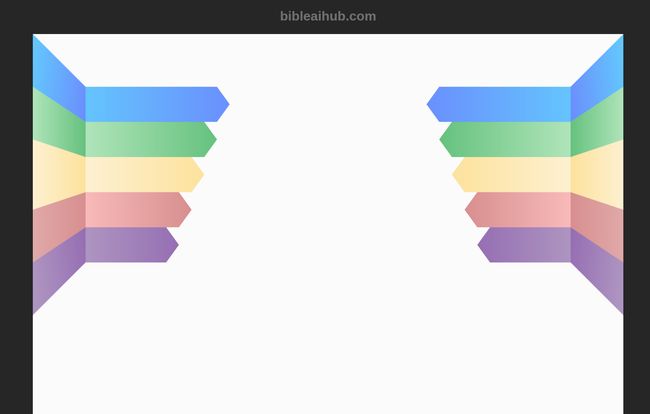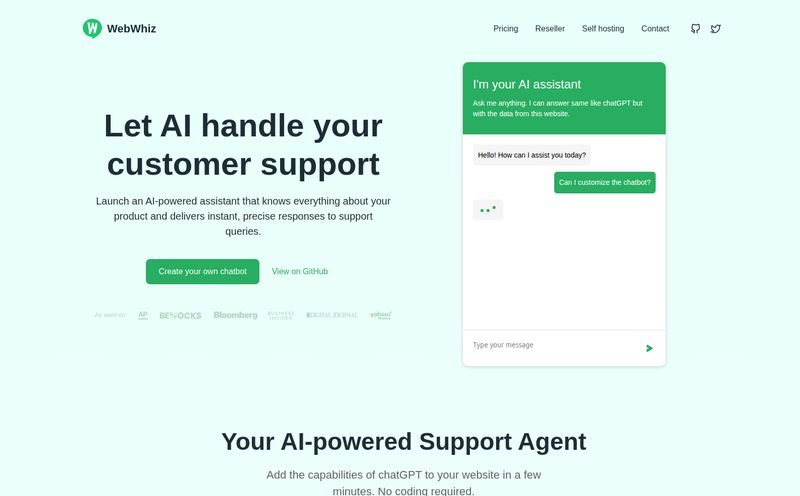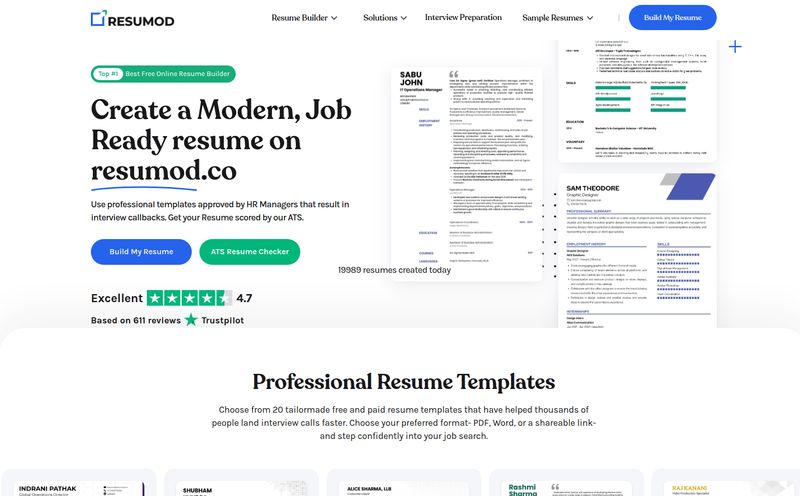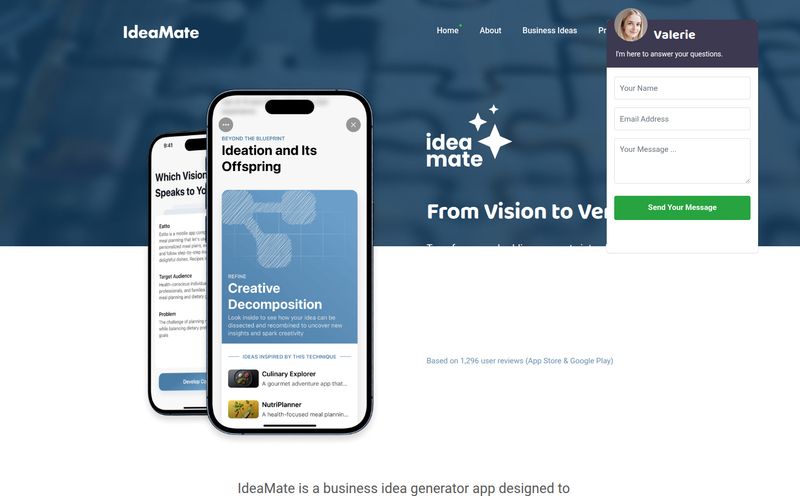If you’re anything like me, you've probably spent a fair few late nights with a thick study Bible, a half-dozen commentaries open, and a cup of rapidly cooling coffee, trying to untangle a particularly tricky passage. Was Paul being literal there? What’s the socio-economic backdrop of that parable? It can be a real rabbit hole.
So, when I stumbled upon a tool called Ask the Bible, my tech-blogger Spidey-senses started tingling. An AI designed to answer questions about scripture? The idea is both fascinating and, I’ll admit, a little bit strange. We’ve got AI writing code, making art, and now, apparently, interpreting holy texts. The future is a weird place, folks.
I had to check it out. Is this a genuinely useful resource for the modern believer, or just another piece of tech-for-tech's-sake? Let's get into it.
What Exactly Is This "Ask the Bible" AI?
In a nutshell, Ask the Bible is an AI-powered platform. You pop in a question—anything from 'Who were the Hittites?' to more complex moral quandaries like 'What does the Bible say about forgiveness when someone isn't sorry?'—and the AI scans the scriptures to give you a context-based answer. It’s not just spitting out a random verse; the goal is to analyze the text and provide a coherent response based on biblical stories, principles, and characters.
Think of it like a super-powered search engine that’s only read one book, but it’s read that book very, very well. It's designed to be a guide, a starting point for your own spiritual exploration.

Visit Ask the Bible
Putting the AI to the Test: My First Impressions
So I jumped in. My first query was simple, a classic Sunday school question: "Why did David fight Goliath?" The response came back quick, summarizing the story from 1 Samuel 17, hitting the main points about David's faith and his defense of God's honor. It even provided the key scriptural references. Okay, not bad. It passed the softball test.
Then I decided to push it a little. I asked a more abstract question about the concept of 'grace'. The answer it provided was pretty solid, pulling verses from both the Old and New Testaments to build a picture of unmerited favor. It felt like a well-written, concise encyclopedia entry.
The speed is probably the most impressive part. For anyone who has spent ages flipping through a concordance, the ability to get a list of relevant verses in seconds is a massive time-saver. It's like having a research assistant who’s never heard the word “sleep.”
The Good Stuff: Where This AI Bible Tool Shines
After playing around with it for a while, a few clear strengths emerged. This tool is genuinely great for sparking curiosity. The way it can suggest related topics is a fantastic feature. You might ask about Moses, and it could prompt you to explore themes of leadership or law in the Old Testament. It’s a great way to break out of a study rut.
I see this being incredibly helpful for someone preparing a small group lesson or a sermon. Need to quickly find three or four passages that talk about hope? Done. Want to understand the historical context of Ephesus before you teach on Paul's letter? The AI can give you a solid primer. It’s a fantastic starting point. It gets the ball rolling on deeper study, and for many people, that's the hardest part.
A Word of Caution: The Limits of AI Theology
Now for the reality check. And this is important. As much as I love a shiny new tech tool, an AI is not a pastor. It's not a theologian. It's not your wise old mentor from church. An AI lacks something profoundly human: spiritual discernment.
The answers, while based on scripture, are interpretations generated by an algorithm. They can lack the warmth, nuance, and lived experience that a human teacher brings. The Bible is a collection of texts that are deeply relational and personal, and an AI, by its very nature, can't fully grasp that. It can give you the 'what', but it often misses the 'why' that comes from a personal relationship with God.
So, is it a replacement for a pastor or a study group?
Absolutely not. And I don’t think it’s trying to be. The developers themselves seem to suggest that the responses should be used as a guide, not as a definitive decree. You should always take what the AI says and weigh it against prayerful consideration, discussion with knowledgeable people in your community, and, of course, your own reading of the scripture. Think of it as one tool in a very large toolbox.
Who Is This Tool Really For?
So, who gets the most out of Ask the Bible? In my opinion, it’s a perfect fit for a few types of people:
- The Curious Newcomer: Someone just starting to read the Bible who feels intimidated and has a ton of questions. This is a low-pressure way to get initial answers.
- The Busy Student: A theology or seminary student who needs to quickly pull references and cross-reference themes for a paper.
- The Small Group Leader: Someone who needs to generate discussion questions or get a quick overview of a passage before leading a study.
- The Skeptic: Honestly, even someone skeptical of faith could use it to quickly research what the Bible says on a certain topic without having to read the whole thing.
It's probably not for someone seeking deep, personal pastoral counseling or looking for a definitive ruling on a complex denominational issue. For that, you need a human.
What's the Price Tag on AI Divinity?
From all the information I could find, it appears that Ask the Bible is free to use. This makes it accessible, which is a huge plus. There's no pricing page or subscription model mentioned, so you can likely jump in and start asking questions without pulling out your wallet.
Frequently Asked Questions
Is Ask the Bible AI accurate?
It's accurate in the sense that it pulls its answers directly from biblical text. However, interpretation is complex. The AI provides a data-driven interpretation, but it may not align with every theological tradition. Always cross-reference its answers with your own study and trusted human sources.
Can this AI tool replace my Bible study group?
No, definitely not. A key part of faith and study is community, discussion, and shared experience. This tool is a great supplement to a study group, but it can't replace the value of human interaction and fellowship.
How does Ask the Bible generate its answers?
It uses a large language model (a form of AI) that has been trained on the biblical text. When you ask a question, it analyzes the query and searches the scripture for relevant passages, themes, and contexts to construct a comprehensive answer.
Is 'Ask the Bible' the same as 'Bible AI Hub'?
This is a good question! I noticed that the domain `bibleaihub.com` appears to be expired or for sale. It's possible the tool was once hosted there or that it's an unrelated project. The tool I reviewed is known as 'Ask the Bible'. It's always smart to double-check you're on the correct, official website for any tool you use.
Final Thoughts on My Digital Disciple Experience
So, what’s my final verdict? I'm cautiously optimistic. Ask the Bible is a genuinely interesting and potentially useful tool when placed in the right hands and used with the right expectations. It's not a digital prophet or an online pastor.
It’s a powerful concordance, a tireless research assistant, and a brilliant starting block for deeper spiritual inquiry. Use it to break down barriers, to answer initial questions, and to spark new avenues of thought. But dont let it be the end of your study. Take what it gives you and bring it into your prayer life, your community, and your personal walk. Technology can be a wonderful servant, but it makes for a poor master, especially in matters of the soul.
Reference and Sources
- Pew Research Center analysis on Americans' awareness and use of AI.
- General information on the tool was sourced from publicly available data about the Ask the Bible AI platform.



